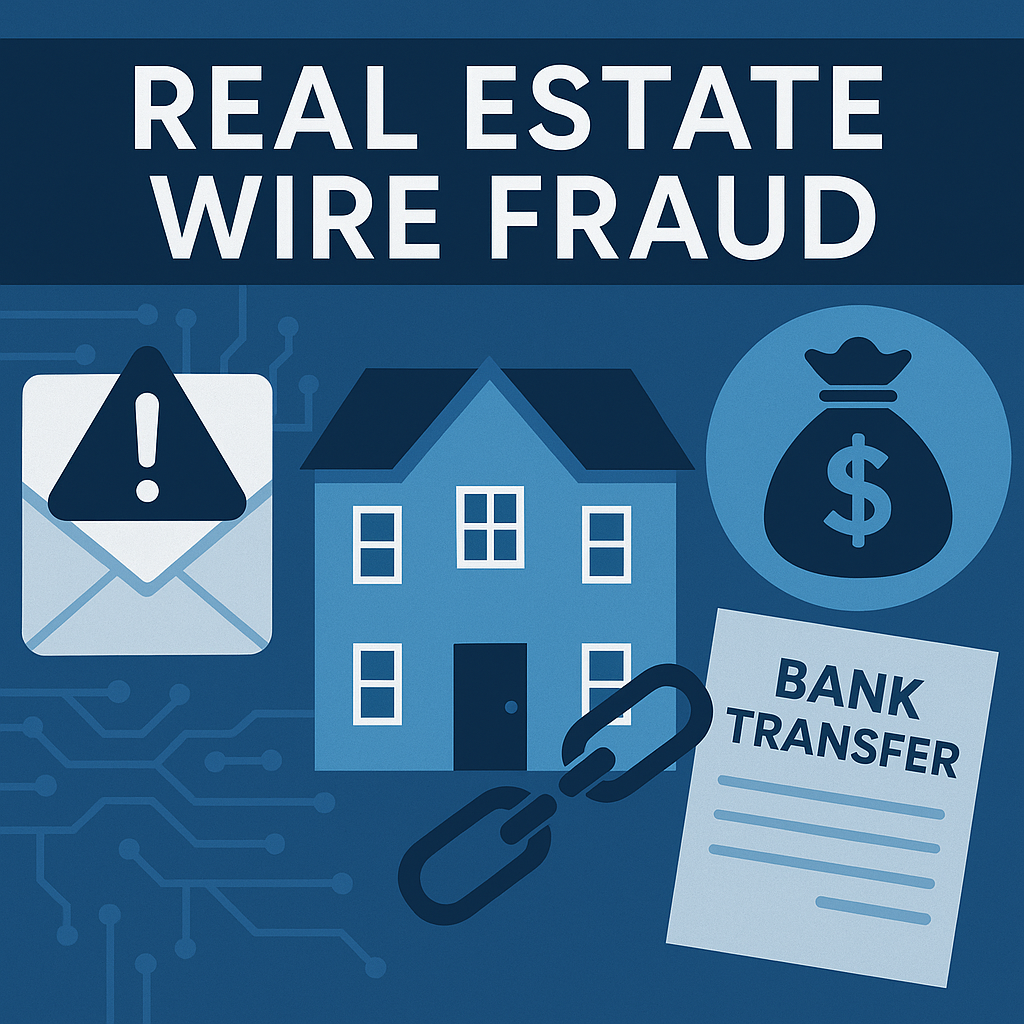Real Estate Wire Fraud in 2025
How to Safeguard Your Homebuying Journey!

In today's digital age, purchasing a home involves numerous online transactions and communications. While technology streamlines the process, it also opens doors for cybercriminals. One of the most alarming threats in 2025 is real estate wire fraud—a sophisticated scam that can devastate unsuspecting homebuyers.
A Cautionary Tale: The $255,000 Mistake
Consider the recent case of a West Virginia couple who lost their entire $255,000 life savings. They received an email, seemingly from their title company, with instructions to wire their closing funds. Trusting the source, they complied, only to discover later that the email was fraudulent. The funds were gone, and their dream home slipped away.
Understanding Real Estate Wire Fraud
Real estate wire fraud typically involves hackers gaining access to email accounts of real estate professionals. They monitor communications and, at a critical moment, send fake wiring instructions to buyers or sellers. These emails are meticulously crafted to appear legitimate, often mimicking the language and formatting of genuine correspondence.. The FBI reports that real estate wire fraud losses have surged, with over $12.5 billion lost in recent years. First-time homebuyers are particularly vulnerable, falling victim at three times the rate of experienced buyers.
Red Flags to Watch For
- Last-Minute Changes: Sudden alterations in wiring instructions or payment details.
- Urgent Requests: Pressure to act quickly or risk losing the property.
- Unfamiliar Email Addresses: Slight variations in email addresses that may go unnoticed. Hover over or click on the senders email address to see where it really goes.
- Unusual Language: Emails with poor grammar or phrases inconsistent with previous communications.
- Requests for Confidential Information: Asking for sensitive data via unsecured channels.
Protecting Yourself: Best Practices
- Verify Instructions: Always confirm wiring details through a known, trusted phone number.
- Be Skeptical of Emails: Treat unexpected emails with caution, especially those requesting financial transactions.
- Secure Your Information: Avoid sharing personal or financial information over email.
- Educate Yourself: Stay informed about common scams and tactics used by fraudsters.
- Use Trusted Professionals: Work with reputable real estate agents, lenders, and title companies who prioritize security.
What to Do If You Suspect Fraud
If you believe you've been targeted or have fallen victim to wire fraud!
- Contact Your Bank Immediately: Request a wire recall.
- Notify All Parties: Inform your real estate agent, lender, and title company.
- Report to Authorities: File a complaint with the FBI's Internet Crime Complaint Center (IC3) and the Federal Trade Commission (FTC).
- Seek Legal Counsel: Consult with an attorney experienced in cybercrime and real estate
Conclusion
Real estate wire fraud is a growing threat in 2025, but awareness and vigilance can protect you. By recognizing red flags and adhering to best practices, you can ensure a secure and successful homebuying experience. Always double-check before you wire funds—it's a small step that can prevent a significant loss.
At FAIRWAY, we do our best to repeatedly educate our home buyers and sellers about the potential for wire fraud and to be extra cautious and trust your gut... if something doesn't feel right, it's a Red Flag and investigate it further by calling your Realtor, Lender and Title Agent immediately.

